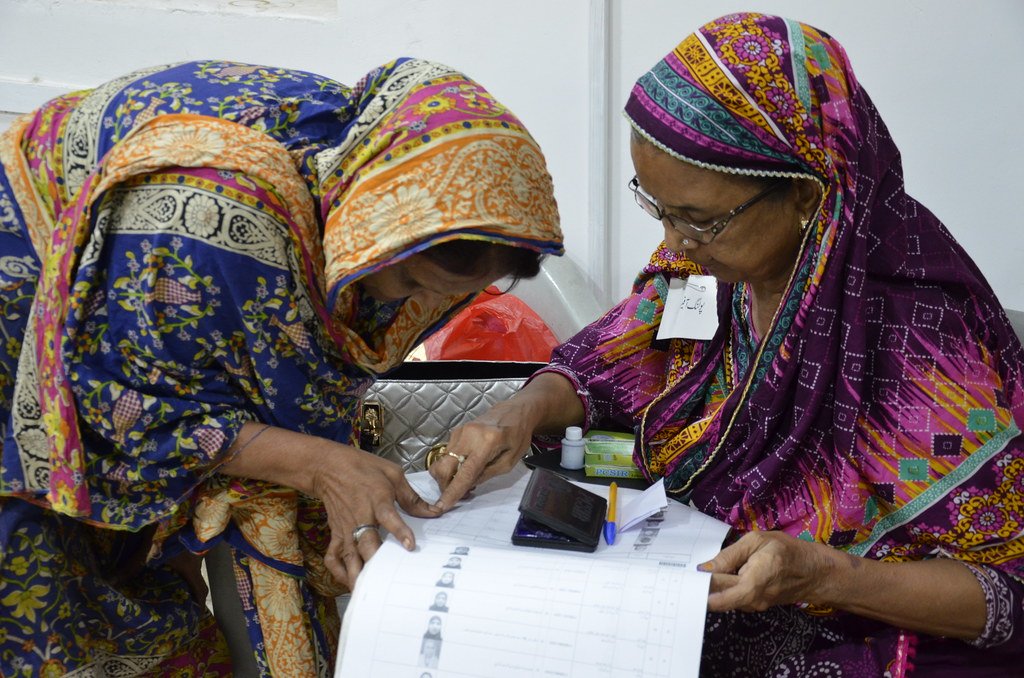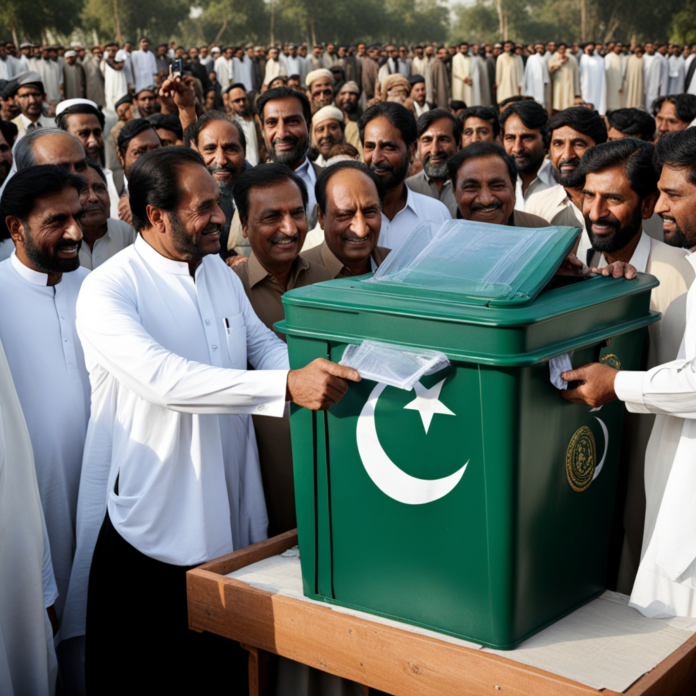Pakistan Election: Countdown to Pakistan’s General Election: Schedule Set for February 8 Amidst Speculation
Introduction: As Pakistan gears up for a crucial general election, the Election Commission of Pakistan (ECP) has announced that the election schedule will be revealed in the middle of this month, with the polling day set for February 8 next year. This decision comes amidst speculation and doubts regarding the timely conduct of elections, given the ECP’s previous challenges and the recent amendments to the Elections Act.

The Election Commission’s Assurance:
In an informal conversation with journalists, Chief Election Commissioner Sikandar Sultan Raja affirmed that the ECP is actively managing election-related responsibilities ahead of the schedule. Raja emphasized counting 54 days backward from February 8, highlighting the adherence to the timeline stipulated by the amended Elections Act.
Political Landscape and Amendments:
The political landscape in Pakistan has been marked by changes, including amendments to the Elections Act in June. These amendments granted the ECP the authority to set the general election date and outlined a procedural timeline spanning approximately 54 days from the announcement of the schedule to polling day.

Challenges and Delays:
The ECP has faced challenges, including doubts about the timely conduct of elections. The failure to hold polls within 90 days of the dissolution of the National Assembly, dissolved on August 9, has fueled skepticism. However, the ECP justified the delay by engaging in the crucial task of marking new electoral districts based on recently released census results.
Delimitation and Changes in Representation:
Following the delimitation process, the National Assembly is set to consist of 336 seats, with a breakdown of 266 general seats, 60 reserved for women, and 10 for non-Muslims. The delimitation exercise has resulted in a decrease of six seats compared to the previous 342 seats. The distribution of seats among provinces reflects the complex demographics and political diversity of Pakistan.
Provincial Breakdown and Representation:
Balochistan, Khyber Pakhtunkhwa, Sindh, and Punjab each have unique representations in the National Assembly. The article provides a detailed breakdown of the general and reserved seats for women and non-Muslims in each province, offering insights into the regional dynamics that will shape the upcoming elections.

The Implications of Reserved Seats:
Apart from the reserved seats for women and non-Muslims, the article delves into the flexibility provided by the system. Women and non-Muslim candidates have the option to contest any general seat, potentially impacting the final composition of the legislative bodies.
FAQs:
1. Why has there been speculation about the timely conduct of elections in Pakistan?
The Election Commission of Pakistan (ECP) faced challenges, including delays in holding polls within the stipulated 90 days after the dissolution of the National Assembly. Doubts arose due to the ECP’s prioritization of fresh delimitation based on newly released census results.
2. What amendments were made to the Elections Act in June, and how do they impact the election process?
The amendments in June empowered the ECP to set the general election date and outlined a procedural timeline spanning approximately 54 days from the announcement of the schedule to polling day. This grants the ECP greater control and a defined framework for election-related procedures.
3. How has the delimitation process affected the composition of the National Assembly?
Following the delimitation process, the National Assembly will consist of 336 seats, with a breakdown of 266 general seats, 60 reserved for women, and 10 for non-Muslims. This represents a decrease of six seats compared to the previous 342 seats, reflecting changes in electoral boundaries.
4. What is the significance of reserved seats for women and non-Muslims in the National Assembly?
Reserved seats for women and non-Muslims contribute to inclusive representation. Additionally, candidates from these categories have the option to contest any general seat, providing flexibility in the electoral landscape.
5. How does the article address the political dynamics of different provinces in Pakistan?
The article offers a detailed breakdown of the representation in Balochistan, Khyber Pakhtunkhwa, Sindh, and Punjab, providing insights into the unique political landscapes of each province. This helps readers understand the regional dynamics that will shape the upcoming elections.
Conclusion:
As Pakistan awaits the unveiling of the election schedule and prepares for a critical electoral process, the challenges, amendments, and demographic shifts outlined in this article provide a comprehensive understanding of the upcoming general election. The evolving political landscape, coupled with the ECP’s commitment to transparency and adherence to the amended Elections Act, sets the stage for a significant moment in Pakistan’s democratic journey.
Also Read
Poki Games: Exploring the World of Fun: An In-Depth Look at Poki and Poki Games 2023-2024
K-pop Dominance: BTS, BLACKPINK, and More Shine in Spotify Wrapped 2023






[…] Pakistan Election Schedule on February 8 […]
[…] Pakistan Election Schedule on February 8 […]